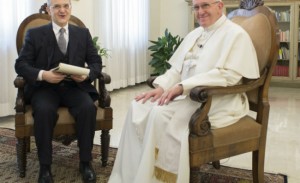1988, Beijing. Westerners were still, literally, referred to as “foreign devils” when Francesco Sisci, then a sinology student, was the first non Chinese ever admitted to the prestigious China Academy of Social Sciences. Known as CASS, the China’s top state run research body had been set up in 1978, the beginning of Deng Xiaoping’s reforms, to serve as a think-tank to the political elite.
If university networks play a role in leadership recruitment everywhere, the importance of top schools is emphasised in China, where efficient technocracy is deeply rooted in a mix of neo-Confucian values and economic pragmatism, and strengthened by the organisational structures of the Chinese Communist Party.
Recently, Joel Andreas’s “Rise of the Red Engineers”, published in 2009, explained the origin of the class of technocratic officials who rule China today. Unsurprisingly, the book revolves around Tsinghua University, like CASS one of Chinese top schools. The prestigious polytechnic in Beijing has effectively become the party’s preferred training ground for leaders.
28th of January 2016, Rome. Pope Francis chose Francesco Sisci for his first ever interview on China and the Chinese people. The seasoned “China expert, if such a thing exists, is comprehensibly nervous. In the long piece published by Asia Times, a Honk Kong based online newspaper, the Pope expresses admiration for the “great culture” and “inexhaustible wisdom” of Chinese civilization and draws comparisons between himself and another Jesuit, Matteo Ricci, one the few Westerners honoured by the communist authorities. In this historic interview, the Pope urged the world not to fear China’s rise. On March 31st, speaking at a seminar in Hong Kong, Francesco Sisci explained that the Vatican has adopted “a new approach to China” with a view at de-escalating tensions in a multipolar world. Are Pope Francis and Xi Jinping on the way to normalise China’s relationsh with the Holy See?
Many commentators seem inclined to share Sisci’s view. For example, under the title “Party and Pontiff”, The Economist writes today that the “Global Times, a party-controlled newspaper, said hopes of a thaw (between the two States) had “gained momentum”, and that an official Chinese delegation had paid a rare visit to the Vatican in January (it is popular with Chinese tourists, pictured).”
After all, China has only recently become fully aware of the Pope’s “soft-power”. Beijing officials, The Economist writes, were indeed “shocked and flabbergasted” by “the difference in the media and popular responses to the two leader’s visits”, when President Xi Jinping and Pope Francis visited the United States at the same time. Fundamentally pragmatic, the Chinese leadership was probably not equipped to understand the spirtitual appeal of the Pope.
The prevalence of economy and “Technik”, the latter defined by the US geo-strategist Parag Khanna as the “technological quotient” of civilisation, may be paving the way for China’s dominance on a global scale. However, neither pragmatism, nor dialectical materialism, both deeply entrenched in China’s history and beliefs, can explain, alone, human events in history. The astonishing popularity of the Pope may change the perception – and significance – of power within the armoured troops of the party hierarchy.





